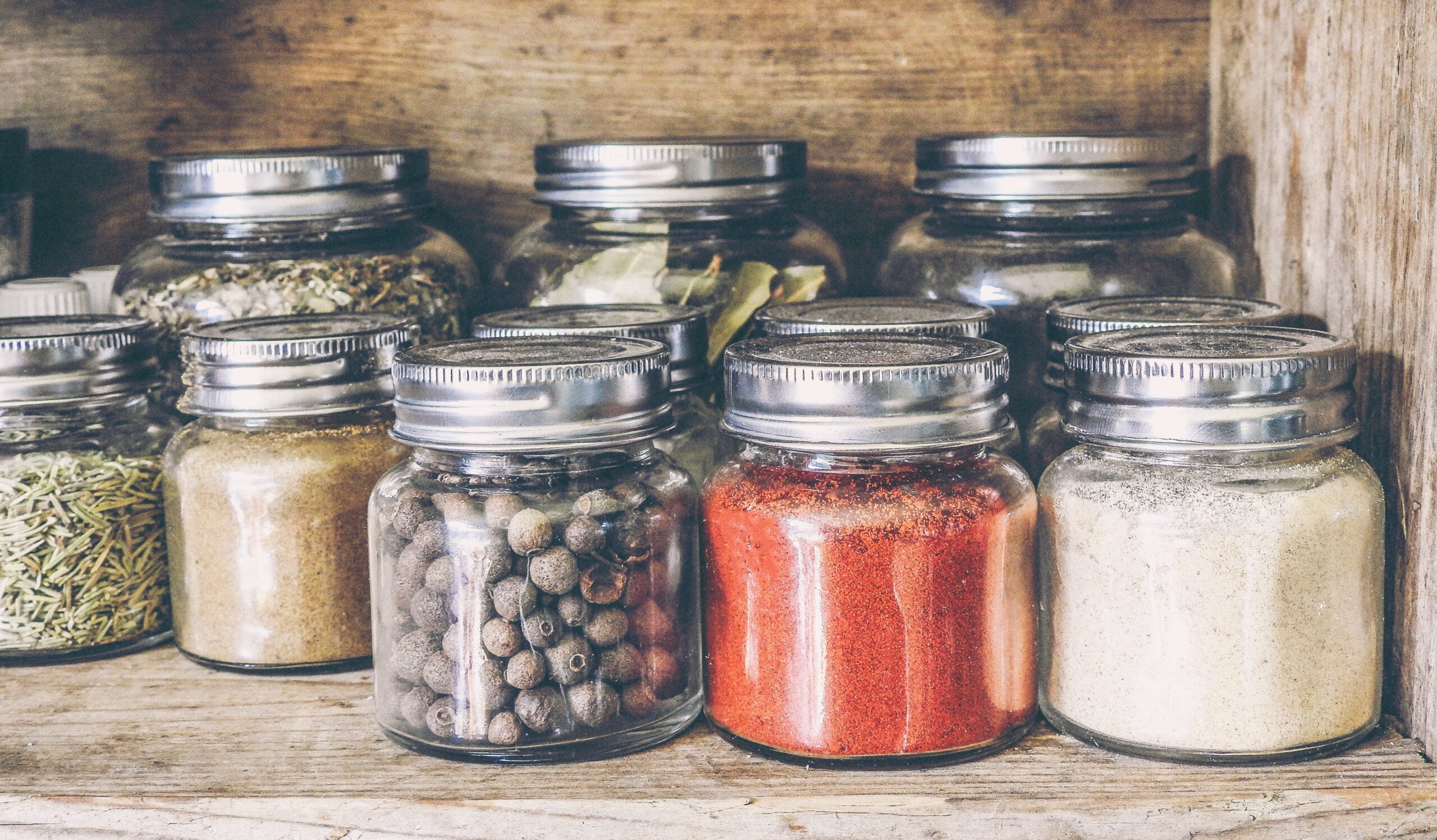Must-Have Spices in the Kitchen
In the culinary world, choosing and using spices wisely is key for any chef or home cook. A well-stocked spice cabinet is just as important in the kitchen as a sharp knife. Basic spices like salt, which enhances the natural flavors of food, and pepper, which adds a little kick, are fundamental for cooking. These staples, along with spices like the sweet warmth of cinnamon and the deep smoke of paprika, add complexity to dishes that can evoke the landscapes of Italy or the vibrant life of India. But which spices are must-haves, and how can we use them effectively? This discussion will narrow down the vast array of spices to those most essential for a versatile kitchen, ready for any culinary challenge.
To start, every kitchen needs a good variety of spices. Salt and pepper are just the beginning. For example, garlic powder brings an earthy depth to dishes, while cumin adds a warm and nutty punch, essential for Mexican and Indian cuisines. Oregano offers a touch of the Mediterranean, while turmeric brings color and a peppery flavor, with added health benefits.
Using these spices in your cooking isn’t just about following a recipe. It’s about experimenting and finding the right balance to suit your taste. For instance, a dash of cinnamon can transform your morning oatmeal or a pot of chili. Smoked paprika can elevate roasted vegetables or meats with its rich flavor.
It’s also worth investing in quality spices. Freshness can make a huge difference in flavor, so buying from reputable sources and storing them properly is important. Small batches can ensure they remain potent for longer.
Include spices like garlic powder, cumin, oregano, and turmeric in your kitchen for versatility and flavor.
Remember, cooking is a personal journey. Spices are the tools that allow you to express creativity and travel the world from your kitchen. So go ahead, play with spices, and see where your taste buds take you!
“Let your kitchen be a place of adventure, with spices as your guide to the flavors of the world.”
Essential Everyday Seasonings
Basic seasonings like black pepper, garlic powder, cumin, cayenne pepper, and turmeric are key to adding depth to your food’s taste. Black pepper is versatile, offering a mild heat that works in most recipes. Garlic powder is handy for giving a consistent garlic flavor without peeling and chopping. Cumin adds a warm, earthy touch that’s great in spice mixes and for seasoning meats. Cayenne pepper adds a strong, spicy heat that can really kick up a dish’s intensity. Turmeric is a must-have for Indian and Southeast Asian cooking, giving dishes a bright color and a unique, slightly bitter flavor.
These seasonings do more than just make food taste better; they can transform a meal. For instance, adding a sprinkle of cumin to roasted vegetables or a dash of cayenne to a chocolate dessert can create an entirely new flavor profile. When you’re looking to add some warmth to your dishes, think about incorporating these spices.
Remember, a little goes a long way, especially with potent spices like cayenne pepper and turmeric. Start with a small amount and adjust to your taste. You can always add more, but it’s tough to fix a dish that’s become too spicy or bitter.
And if you’re looking to try these spices, look for organic options or brands that focus on quality and sustainability. Not only will your dishes taste better, but you’ll also be supporting more responsible farming practices.
Custom Quote: “Cooking is like painting or writing a song. Just as there are only so many notes or colors, there are only so many flavors—it’s how you combine them that sets you apart.” – Wolfgang Puck
Spices for Versatile Cooking
Expanding on the core group of spices used daily, let’s examine the versatile nature of certain seasonings like bay leaves, cinnamon, paprika, nutmeg, and oregano. These can truly transform a variety of recipes with their unique tastes. Bay leaves bring a gentle, earthy quality to dishes that simmer for a while, adding depth to the flavor profile. Cinnamon, with its recognizably sweet and slightly spicy aroma, is a must-have for a range of dishes, from sweet pies to savory curries. Paprika adds a mild smoky essence and a pop of color, ideal for stews, meat rubs, and as a finishing touch for dishes. Nutmeg, with its comforting spice, fits right into creamy dishes and various baked treats. Oregano, with its bold, herbaceous taste, infuses a hint of the Mediterranean into pizzas, meat marinades, and roasted vegetables.
When using these spices, it’s more than just about adding taste—it’s about creating an experience. For example, a pinch of nutmeg in a béchamel sauce used for a classic lasagna can make a remarkable difference. Or consider oregano, not just sprinkled on pizza, but also mixed into a marinade for grilled chicken, offering a zesty, herbaceous punch.
To create a balanced dish, think about the spice’s impact on the overall flavor. For instance, a little cinnamon can add a mysterious warmth to meat stews without overpowering the other ingredients. In contrast, too much can take the dish in an unwanted direction.
For those who enjoy experimenting in the kitchen, consider these spices as your allies. They work wonders in enhancing the taste of your meals, and you can find them at your local grocery store or specialty food shop.
Cooking Tip: To get the most out of bay leaves, add them early in the cooking process, allowing their flavor to permeate the dish.
Herbs for Flavor Enhancement
In the world of cooking, herbs like thyme, rosemary, and cardamom are key for adding depth and interest to your food. Thyme brings an earthy taste with a hint of lemon, which is perfect for making roasted meats and veggies taste even better. Rosemary adds a distinctive aroma that’s a bit like pine and works great with chicken, lamb, and potatoes to give them a richer flavor. Cardamom has a strong, unique taste with notes of citrus and mint, and it can really change the game, whether in sweet dishes or savory ones. Each herb has its own special way of making a simple plate of food taste amazing. People who cook, whether they’re professionals or just doing it at home, use these herbs to add more interesting flavors to their meals, creating something truly memorable.
Thyme is your go-to for a touch of earthiness. Rosemary makes your poultry and starchy sides sing with its aromatic touch. And don’t forget cardamom – it’s the secret spice that can give a dish an unexpected twist. Cooks everywhere know that these natural flavors are what make a meal stand out.
Remember to experiment with these herbs in your own kitchen. They’re not just for garnish – they’re the supporting actors that can steal the show in any meal. And here’s a little tip: try adding fresh sprigs of rosemary to your next batch of roasted potatoes with a dash of olive oil and sea salt – your taste buds will thank you.
Incorporate these herbs into your next culinary adventure and watch as they work their magic, transforming the ordinary into the extraordinary.
Exotic Spices for Global Dishes
If you’re passionate about creating dishes from around the world, you’ll know that the right spices are key to nailing those authentic tastes. These aren’t just any ingredients; they’re the heart and soul of international cuisine, offering you a gateway to the flavors of different cultures right from your kitchen.
Here’s a list of must-have spices that’ll add some global zest to your cooking:
| Spice | Origin |
|---|---|
| Saffron | Middle East & South Asia |
| Sumac | Middle East |
| Star Anise | China & Vietnam |
| Ras el Hanout | North Africa |
Saffron, with its rich golden hue, can transform a simple risotto into an Iranian masterpiece. Sumac, tangy and slightly sour, is perfect for sprinkling over a fattoush salad for that authentic Middle Eastern zing. Star anise, shaped like a charming eight-pointed star, infuses a warm, licorice-like flavor into Vietnamese pho. And Ras el Hanout, a robust blend of spices, is a game-changer for Moroccan tagines.
By stocking your pantry with these exotic spices, you’re not just preparing for a meal; you’re setting the stage for an international culinary adventure. Remember, the right spice can turn a dish from mundane to memorable with just a pinch or a spoonful.
And here’s a tip: when you’re looking for that perfect saffron to elevate your paella or want the most aromatic Ras el Hanout for your couscous, seek out specialty stores or online shops that source high-quality spices. Your taste buds will thank you.
In the words of a seasoned chef, “Spices are the passport to a world of flavor, and with the right ones, every meal can be a journey.”
Spices With Multiple Uses
Common spices like saffron and sumac add unique flavors to international dishes, but everyday spices are also incredibly flexible in their uses. Black pepper and garlic powder are fundamental in many recipes, adding a bit of heat and rich taste. Cumin, with its warm and earthy flavor, is a favorite in Middle Eastern and Indian cooking and brings depth to Tex-Mex recipes. Cayenne pepper offers a bold kick and works well in a range of foods, from spicy sauces to rich chocolate treats. Turmeric is known for its bright color and possible health benefits, and it’s key in making curries as well as lending a gentle earthy taste to soups and rice.
These spices are essential in the kitchen, offering cooks the chance to experiment and blend different culinary traditions.
Spice Combinations for Culinary Magic
Understanding how to mix spices can turn basic meals into extraordinary experiences, by enhancing the natural flavors and creating a balance in the dish. Here’s a look at some timeless spice pairings that can really improve your cooking:
- Cumin & Coriander: These spices are staples in Indian cooking, providing a warm and slightly citrusy foundation.
- Rosemary & Garlic: This combination is a favorite in Mediterranean dishes, especially for seasoning meats and veggies.
- Cinnamon & Nutmeg: Used together, these spices add a cozy warmth and layered flavor to baked goods.
Using these spice pairings can make even the simplest meal more exciting for your taste buds.
Remember, the skill in using spices is knowing their individual tastes and how they can complement one another. When you understand this, you can start experimenting and possibly find your own favorite mixtures. Keep in mind that less can be more – you don’t want to overwhelm a dish with too many competing flavors.
For example, if you’re making a hearty stew, a bit of cumin and coriander can add depth to the dish. If you’re baking an apple pie, a dash of cinnamon and nutmeg can bring out the sweetness of the apples.
In the end, cooking with spices is about personal preference and trial and error. Don’t be afraid to try new combinations and adjust the amounts to suit your taste. And always remember to taste as you go – it’s the best way to ensure you’re on track to creating a delicious meal.


